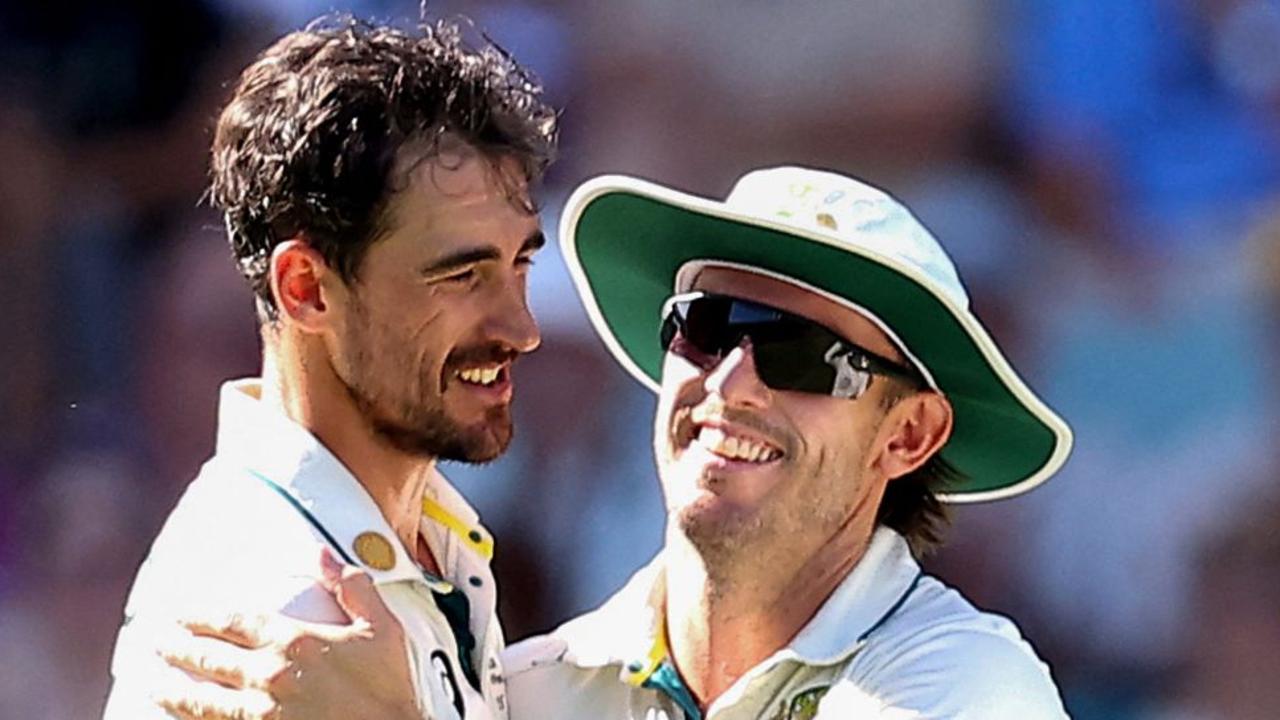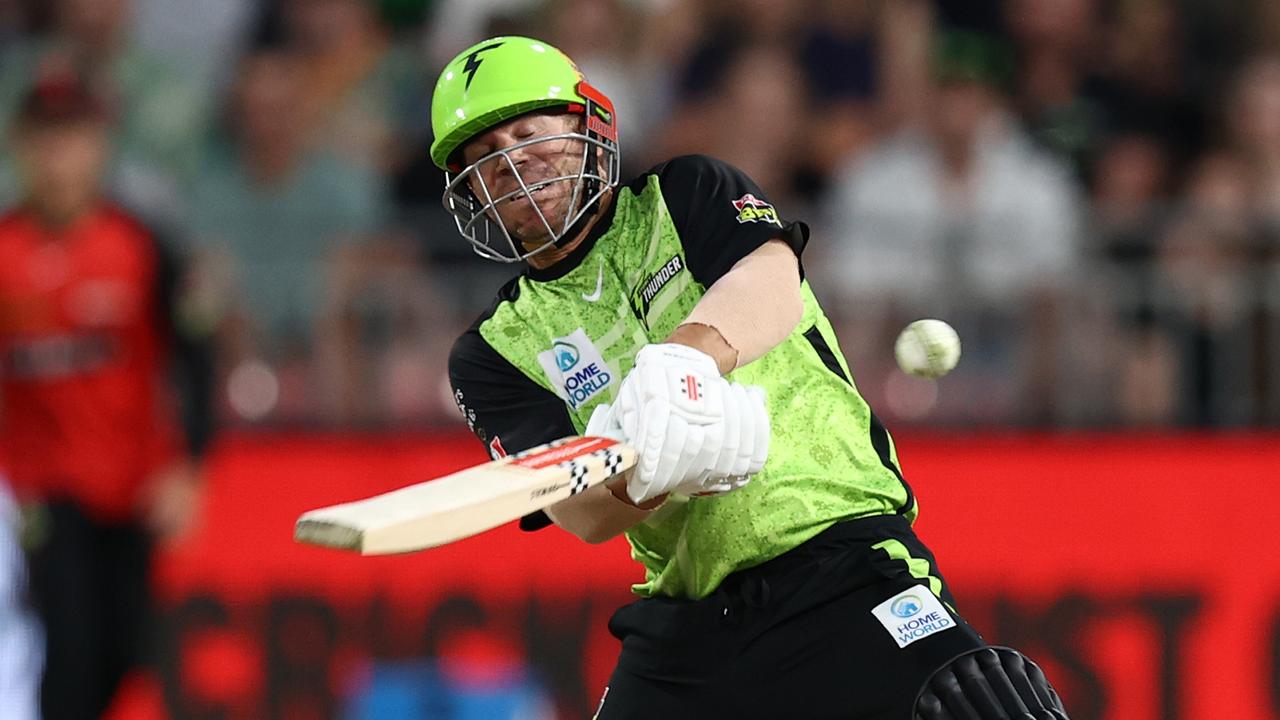Mitch Marsh regresses to the mean, leaving Aussie Test spot in doubt
Mitch Marsh seems to be the player most under the pump to keep his spot for Australia, but the truth is, he’s not doing much different compared to his Allan Border Medal-winning year.
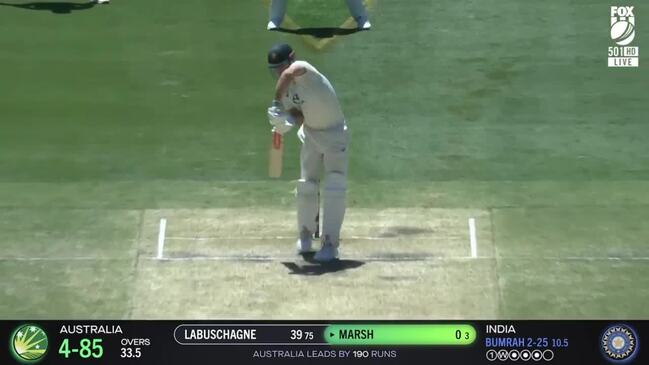
From Allan Border Medallist in January to the brink of Test omission by the end of the year, it would seem at face value like a lot has changed for Mitch Marsh.
But the truth is, Marsh is not batting all that worse than he was over the period he entrenched himself as Australia’s premier player of the year.
According to CricViz, his false shot rate against pace in Test cricket has drifted from 20 per cent in 2023 to 24 per cent this year. That’s a decline, but hardly the precipitous gulf to clearly explain what has transpired.
The biggest difference is he’s run out of luck.
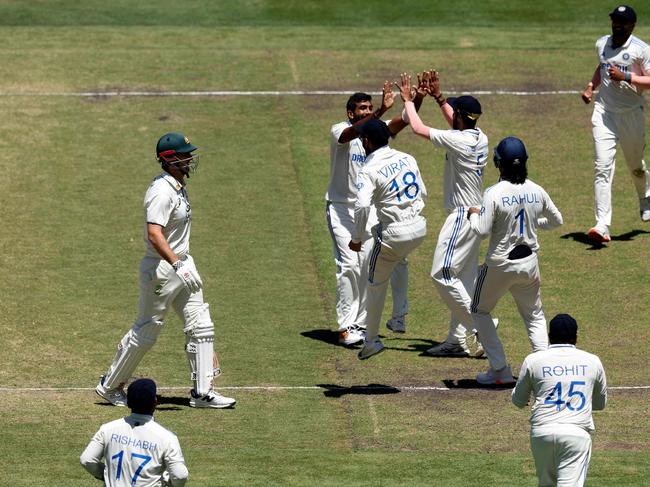
While Marsh averaged an even 50 in his three Ashes Tests after being recalled for the injured Cameron Green at Leeds last year, and then 86 in three Tests against Pakistan last summer, he had done so streakily.
Across those six Tests, he was dropped six times according to CricViz data. Marsh was also put down on 28 by Rachin Ravindra at Christchurch in March, when he and Alex Carey led Australia’s fightback – Marsh making 80 riding to complement Carey’s unbeaten 98.
The most telling of these spills was that from Joe Root at first slip on day one at Headingley in what was Marsh’s first Test in almost four years.
Dropped on 12, Marsh rode that luck to bludgeon England’s attack and make 118 while also bowling impactfully.
Though the hosts ultimately edged a nip-and-tuck Test, Marsh’s imperious knock ensured he was undroppable (at the selection table, not in the cordon), setting in chain a series of events from which the Australian side has never fully regained equilibrium.
Aussie selectors went into the Manchester Test without a specialist spinner, and then when that went pear-shaped omitted Cameron Green for the rest of the year.
Desperate to bring Green back at the earliest possible chance, Steve Smith was shoehorned into the opening slot when David Warner retired.
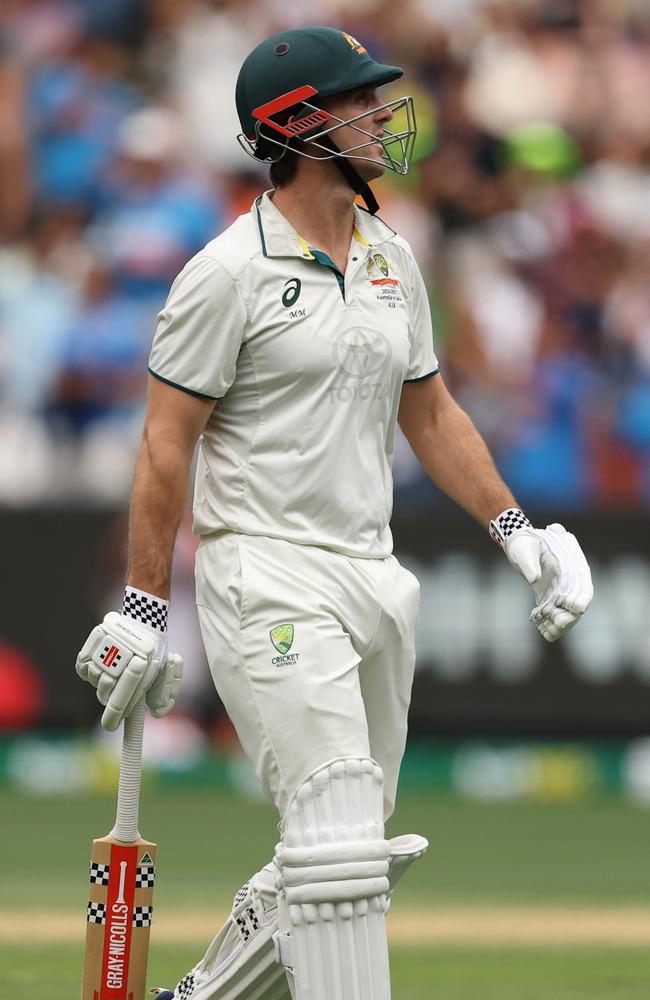
Then if not for Green’s season-ending back injury they would have needed to find another reluctant opener from the incumbents rather than picking Nathan McSweeney, and then when that failed, Sam Konstas.
But while Marsh – about as affable and likeable a Test cricketer as Australia has had this century – was in the midst of a fairytale run this time last year that would culminate in one of the great winner’s speeches at the Australian Cricket Awards, there were reasons he had been on the outer to start with.
Though his all-format deeds made him a worthy medallist, he has regressed to the mean this summer against India, averaging just 10.42 from seven innings and barely being a factor with the ball amid troubles with his back.

Last year he was surviving even when he should have been getting out. Conversely if there is one moment to emphasise how his fortunes have changed, it was his dismissal in Adelaide, walking to a ball he didn’t even hit, one of six single-digit scores for the series.
His position will be widely debated ahead of the Sydney Test and the Sri Lanka tour, where ideally Australia would have a seaming all-rounder to allow them to play a specialist spinner.
Green won’t be back in the national side until mid-2025 at the earliest, but in Beau Webster the panel has a tremendously dynamic player who has barely put a foot wrong in first-class cricket for a couple of years.
Marsh’s second coming from a man booed when he came onto bowl in the Boxing Day Test six years ago to much-loved leader and larrikin has been one of cricket’s feel-good stories.
But whether he plays in Sydney or not, this chapter feels like it is in its final few pages.



